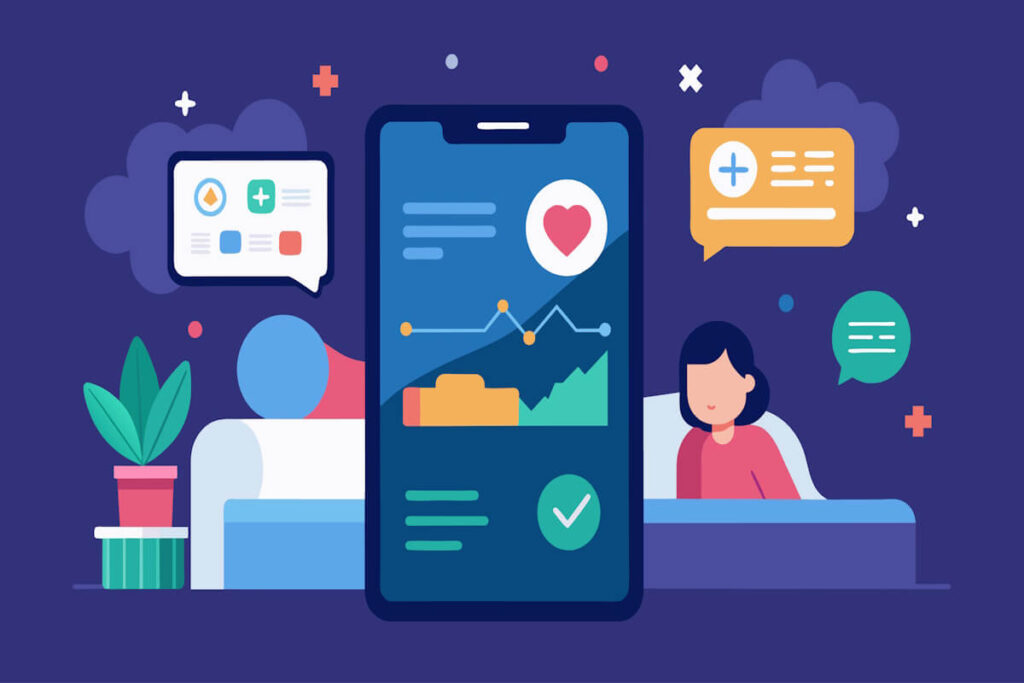In today’s digital age, healthcare apps have become an integral part of the healthcare industry. With the rise of smartphones and other mobile devices, more and more people are turning to healthcare apps for their medical needs. As a result, developers are constantly looking for ways to improve their apps and provide users with the best possible experience. In this article, we will explore some of the top features for healthcare apps, as recommended by leading developers in the field.
1. Appointment Scheduling
One of the most important features of a healthcare app is appointment scheduling. Users should be able to easily book appointments with healthcare providers directly through the app. This feature not only saves time for both patients and providers but also helps to reduce no-shows and cancellations.
- Appointment scheduling feature should allow users to select preferred date and time slots for appointments.
- Integration with calendar apps to send reminders and notifications for upcoming appointments.
- Ability to reschedule or cancel appointments within the app for convenience.
2. Telehealth services
Telehealth services have become increasingly popular in recent years, especially in light of the COVID-19 pandemic. Healthcare apps should offer telehealth services that allow users to consult with healthcare providers remotely. This feature is especially useful for patients who are unable to visit a doctor in person due to distance or mobility issues.
- Telehealth services should include video consultation options for a more personalized experience.
- Secure messaging feature within telehealth services for communication between patients and healthcare providers.
- Integration with insurance providers for seamless billing and payment processing.
3. Electronic Health Records (EHR) Integration
Healthcare apps should have the ability to integrate with electronic health records (EHR) systems. This allows healthcare providers to access patient information seamlessly and ensures that all medical data is up to date and accurate. EHR integration also helps to improve communication between providers and patients.
- EHR integration should prioritize data security and compliance with healthcare regulations.
- Features for patients to view their own health records and test results within the app.
- Automatic syncing of EHR data to ensure real-time updates for healthcare providers.
4. Medication Reminders
Another important feature of healthcare apps is medication reminders. Users should be able to set reminders for when to take their medications and receive notifications when it’s time to do so. This feature is particularly useful for patients with chronic conditions who need to take multiple medications throughout the day.
- Customizable medication reminders based on dosage, frequency, and specific instructions.
- Integration with pharmacy services for medication refills and delivery options.
- Tracking feature to monitor medication adherence and provide insights to users and healthcare providers.
5. Health Tracking
Healthcare apps should also include features for tracking various health metrics, such as blood pressure, blood sugar levels, and weight. Users should be able to input this data manually or connect their devices for automatic tracking. This information can help users and their healthcare providers monitor their health and make informed decisions.
- Graphical representations of health metrics for easy visualization and trend analysis.
- Integration with wearable devices for seamless data transfer and tracking.
- Personalized health goals setting feature with progress tracking and rewards system.
6. Secure Messaging
Secure messaging is another essential feature for healthcare apps. Users should be able to communicate with their healthcare providers securely and confidentially through the app. This feature allows for quick and easy communication, reduces the need for phone calls or in-person visits, and ensures that patient information remains private.
- End-to-end encryption for secure messaging to protect patient confidentiality.
- Options for multimedia attachments such as images or documents for better communication.
- Notification settings to alert users of new messages and responses from healthcare providers.
7. Integration with Wearable Devices
Many people use wearable devices, such as fitness trackers and smartwatches, to monitor their health and fitness. Healthcare apps should be able to integrate with these devices to provide users with a comprehensive view of their health data. This integration can help users set and track their health goals more effectively.
- Compatibility with popular wearable devices brands for broader user reach.
- Automatic syncing of wearable device data with the app for real-time tracking.
- Insights and recommendations based on wearable device data to promote healthier lifestyle choices.
Conclusion
In conclusion, healthcare apps play a crucial role in modern healthcare delivery, and developers must continuously strive to improve their apps to meet the needs of users. By incorporating features such as appointment scheduling, telehealth services, EHR integration, medication reminders, health tracking, secure messaging, and integration with wearable devices, developers can create healthcare apps that provide users with a seamless and comprehensive healthcare experience. Leading developers in the field recommend focusing on these top features to ensure the success and effectiveness of healthcare apps in today’s digital world.
Do you have any questions about the features mentioned in this article or want to learn more about how healthcare apps can benefit you? Feel free to contact us.
FAQs:
1. What is the most important feature of a healthcare app according to leading developers?
- Answer: Appointment Scheduling.
2. Why are telehealth services considered important for healthcare apps?
- Answer: Telehealth services allow users to consult with healthcare providers remotely, which is especially useful for patients who are unable to visit a doctor in person.
3. Why is Electronic Health Records (EHR) Integration crucial for healthcare apps?
- Answer: EHR integration allows healthcare providers to access patient information seamlessly, ensuring that all medical data is up to date and accurate, and improving communication between providers and patients.
4. Why are medication reminders considered an important feature for healthcare apps?
- Answer: Medication reminders allow users to set reminders for when to take their medications and receive notifications when it’s time to do so, which is particularly useful for patients with chronic conditions who need to take multiple medications throughout the day.
